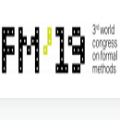Since its conception, digital synthesis has significantly influenced the advancement of music, leading to new genres and production styles. Through existing synthesis techniques, one can recreate naturally occurring sounds as well as generate innovative artificial timbres. However, research in audio technology continues to pursue new methods of synthesizing sounds, keeping the transformation of music constant. This research attempts to formulate the framework of a new synthesis technique by redefining the popular Proportional-Integral-Derivative (PID) algorithm used in feedback-based process control. The framework is then implemented as a Python application to study the available control parameters and their effect on the synthesized output. Further, applications of this technique as an audio signal and LFO generator, including its potentiality as an alternative to FM and Wavetable synthesis techniques, are studied in detail. The research concludes by highlighting some of the imperfections in the current framework and the possible research directions to be considered to address them.
翻译:自其构思以来,数字合成极大地影响了音乐的进步,导致了新的基因和生产风格。通过现有的合成技术,人们可以再生自然产生的声音,并产生创新的人工字格。然而,音频技术的研究继续采用合成声音的新方法,使音乐的转变保持不变。这一研究试图通过重新界定反馈程序控制中使用的流行的成比例-内分位-自主(PID)算法来制定新的合成技术框架。然后,将该框架作为Python应用软件来研究现有的控制参数及其对合成输出的影响。此外,还详细研究了作为音频信号和LFO生成器的这一技术的应用,包括其作为调频和波变合成技术的替代技术的潜力。研究最后强调了当前框架中的一些缺陷以及考虑解决这些问题的可能研究方向。




